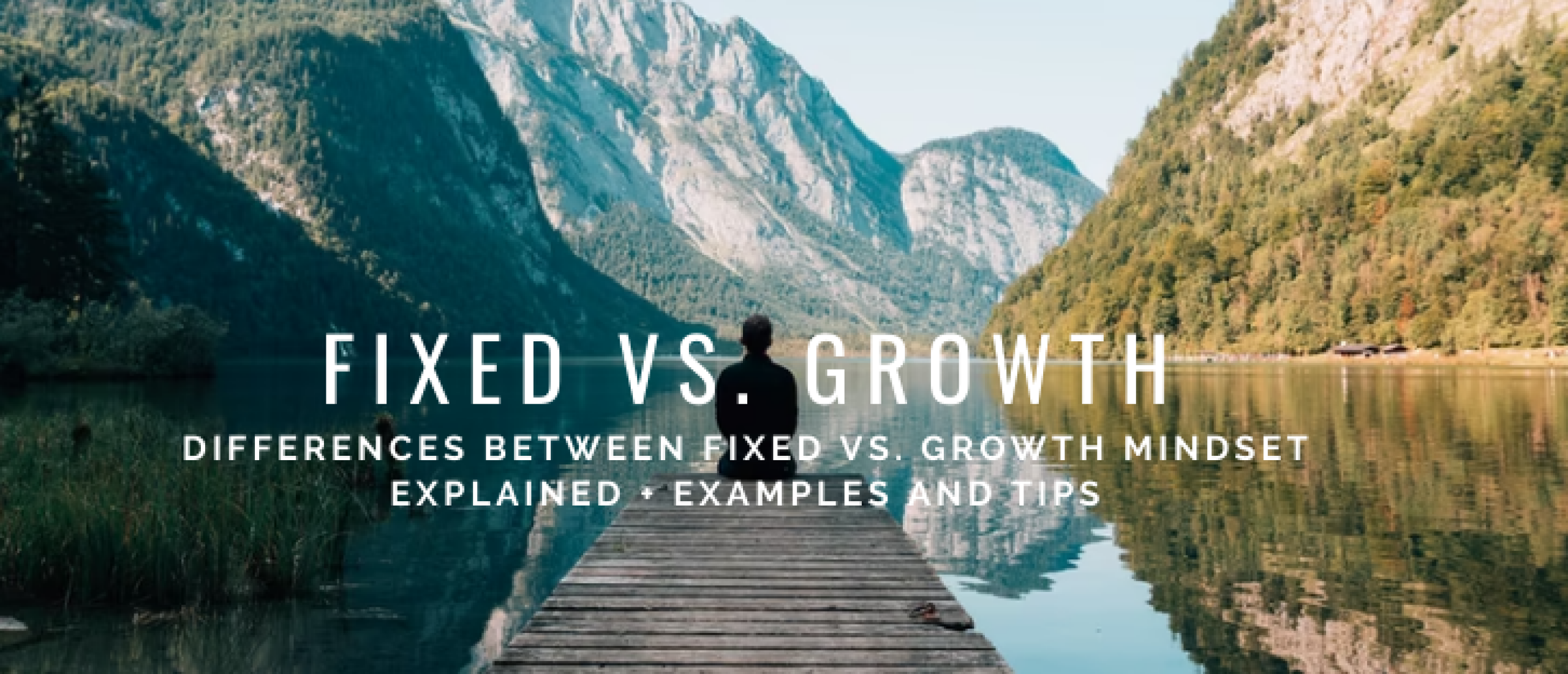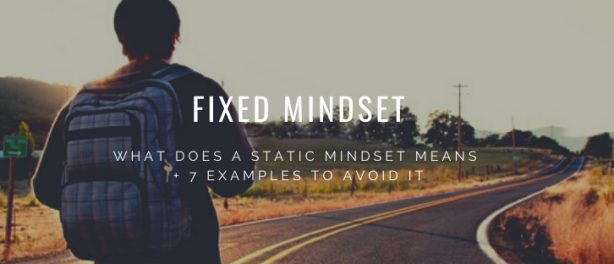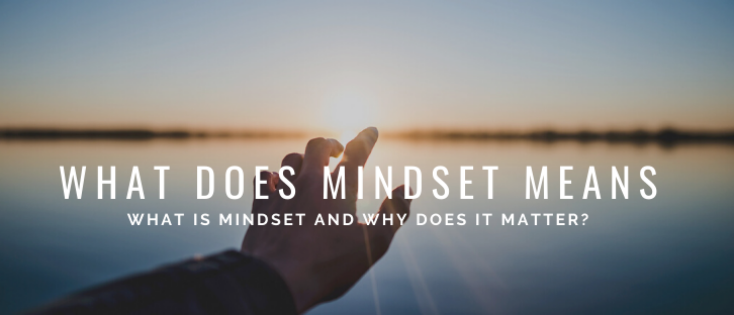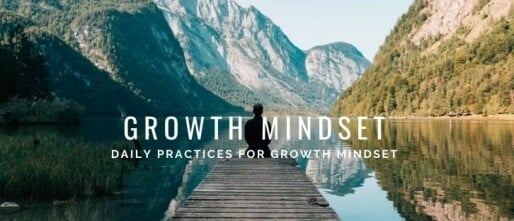Dear Happy Investor, do you know the difference between a fixed and growth mindset? There are major differences between these mindsets. One keeps you trapped in a limiting world. The other leads to sustainable growth in every aspect imaginable. In this article, we'll discuss the important differences between fixed and growth mindset. We'll also give you lots of examples and tips to change from fixed to growth.
On to sustainable (financial) success!
Content
What is a Fixed and Growth Mindset?
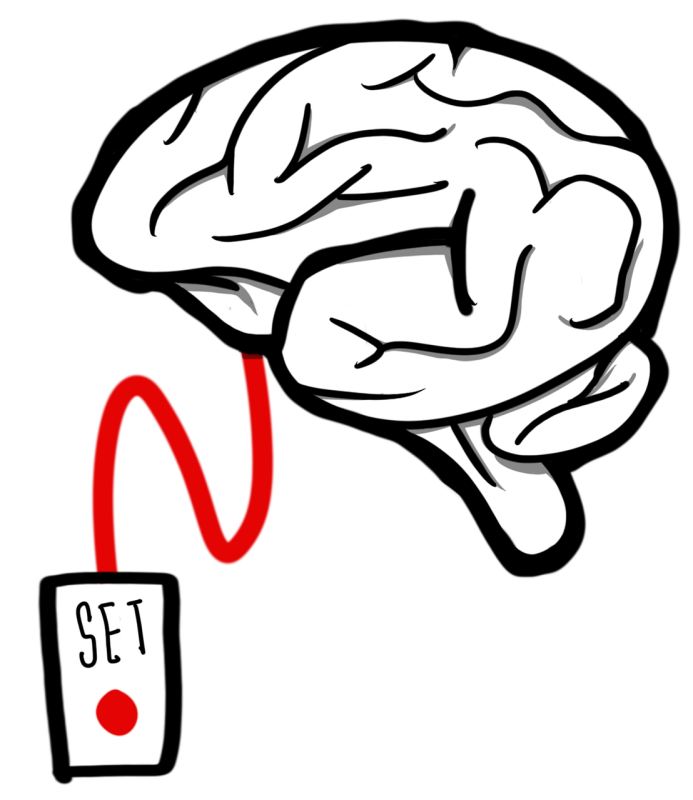
The concept of fixed and growth mindset comes from Carol Dweck. She described this theory in her 2006 book Mindset: The New Psychology of Success. Since then, she revolutionized psychology and how we see mindset, intelligence, and skills.
Dweck teaches us that our mindset makes a big difference in our skills. It helps us to achieve our goals.
What is a Fixed Mindset?
A fixed mindset believes that one's abilities and skills are permanent. Those with a fixed mindset may not feel that they can become smarter or that when it comes to abilities and talents, you either "have it or you don't." The term is appropriate because people are literally stuck with this way of thinking. They do not believe that it is possible to get better purely based on effort and regardless of heredity and genetics.
What is a Growth Mindset?
People with a growth mindset recognize that not being good at something is a transitory state. They don't have to feel embarrassed or strive to prove they're smarter than they are. They are not obsessed with succeeding over something. Instead, they see challenges as opportunities for growth.
Simply put, a growth mindset is a predisposition to believing that everyone can improve their skills and intelligence with effort.
Below we will go into more detail about the differences and examples. You will also find tips to change from a fixed to a growing mindset. In case you are not yet familiar with this matter, you can read more about what Mindset means here.
Differences and examples of Fixed and Growth Mindset
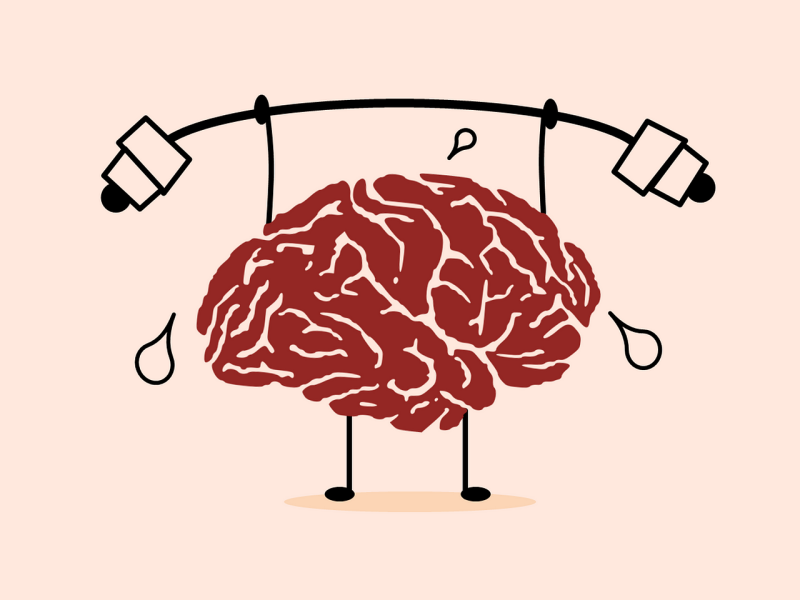
Here are the main differences between fixed and growth mindsets. Below we discuss them from examples. This knowledge can change your life for the better. Silence is regression. Growth is progress.
A growth mindset believes that improving is possible. A fixed mindset believes it is not.
The main difference between the two mindsets is how they view intelligence and skill: one sees it as very permanent, with little to no space for progress in any way, while the other sees it as more malleable, with potential for improvement in both directions (progress or regression).
It is very important to understand that this is a mindset. It is a set of thoughts about how you see the world and your reality. Your behavior and actions stem from these thoughts. If you believe there is no room for improvement, you will not make the necessary effort to prove otherwise!
Fixed mindset example: We have a set dose of intelligence, and that's it.
Growth mindset example: The intelligence we have is only a starting point
A fixed mindset avoids challenges and gives up easily. A growth mindset perseveres.
People with fixed mindsets avoid getting out of their comfort zone. Once they are there, they give up easily. They give up because they are afraid of failure. People with growth mindsets keep going. They love challenges and persevere until the very end.
Fixed mindset example: I’m not good at this. I should give up.
Growth mindset example: Setbacks are ideal opportunities for growth
An example is with investing or being smart about money. Yes, you too can become smarter about financial matters. Whether that's about saving or investing. There is always room to learn. You just have to want to. If the will is there, you can learn from others and also become successful in "difficult" areas such as financial matters.
They have different perspectives on effort.
These two types of mindsets see their skills and intelligence very differently. One believes they are fixed, the other believes that it is possible to improve. This perspective also affects how they perceive effort.
For a fixed mindset, effort is fruitless because their skills are fixed. For example, they believe it is pointless to take dance classes because they are terrible dancers. On the other hand, a growth mindset sees effort as valuable. They think that it has a positive effect on their skills.
Fixed mindset example: If I have to try, I must not be good enough.
Growth mindset example: Effort is what makes us smarter and better.
They react differently to feedback.
People with fixed mindsets tend to fear feedback because they don't like to be bad at something. That happens because they believe their current skills define them. On the other side, people with a growth mindset value feedback because that allows them to learn.
People who think in growth also tend to have a positive mindset. They are more optimistic and have a positive outlook on life. As a result, they experience feedback differently. Thanks to this mindset, they will achieve more in the long run. Want to know more about positive thinking? Read all about developing positive mindset.
Fixed mindset example: He's so jealous. His feedback makes no sense at all.
Growth mindset example: He has a valid point. I will think about how to implement it next time.
Fearing failure vs. Learning from failure.
People with fixed mindsets are afraid of failing because they believe their skills are part of who they are. They don't believe they can become better. For that reason, they react negatively when they make mistakes.
People with a growth mindset don’t react badly to failure. They understand that it is a part of learning.
Fixed mindset example: I will not try to do that because I can fail.
Growth mindset example: I can try it, and If I fail, I will learn from that.
Wanting to learn vs. Wanting to look smart.
People with fixed mindsets tend to give too much importance to what other people think about their skills. They believe their current abilities define who they are.
People with a growth mindset care about learning. They don't care about what people say because they know they are more than their current abilities.
Fixed mindset example: I'm not good at this. What If I fail and people laugh about me?
Growth mindset example: I'm not good at this, but I will keep trying. I will learn how to do it right.
A fixed mindset limits you. A growth mindset leads to success.
This mindset difference could lead to significant behavioral changes. If someone feels that abilities are unchangeable, they are unlikely to make significant efforts to improve their innate intelligence and abilities. Those who believe they can modify these characteristics, on the other hand, are more motivated to put in extra time and effort to reach more ambitious goals.
Fixed mindset example: This is not my thing. I should do something else.
Growth mindset example: I will keep trying until I succeed.
How to change from Fixed to Growth Mindset? 5 Tips
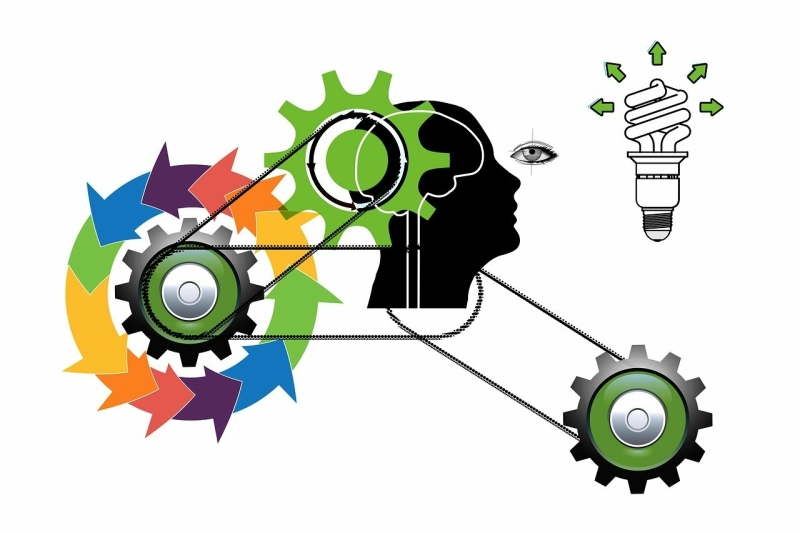
We discussed examples and differences at length. Hopefully, you will see that having a growth mindset is more conducive to your life. It's not that you always have to think this way. In the beginning, it will be with small steps. But at some point you will program your thinking in a positive and growing way.
Here are some simple practices that you can do every day to change from a fixed to a growth mindset.
1. Do something new every day.
Put yourself out of your comfort zone. If you always do the same things every day, you will be afraid of trying new things. It does not matter how small. Maybe you want to take a yoga class or a new sport for the first time, paint, try a new recipe, do whatever you haven't tried before. Get out of the routine.
A good tip is to look at your circle of influence. People with a fixed mindset often have limiting thoughts about how much influence they actually have. They place much more value on luck and bad luck, as if it "happens" to them. But it doesn't. You have a lot of influence over your life. Read more about the circle of influence here.
2. Practice self-awareness
As you can see, a fixed mindset comes with a set of limiting beliefs. This belief system consists of repetitive negative thoughts that don't let you move forward. If you want to change it, you first have to become conscious of these thoughts. Pay attention to what you say, what you think, and what you do at every moment. If you are honest with yourself, you will notice some negative thinking patterns.
Being alone without any distractions allows you to get to know yourself better. Go to a private place and be aware of the present moment. Thoughts will start to appear. You should pay attention to what they say.
3. Refute the fixed-mindset thoughts with a growth mindset.
Once you identify the fixed-mindset thoughts that frequently appear in your head, you can start to change them. Instead of thinking: "I'm not good at this," think: "I'm not good at this yet."
4. Remember those times when you were able to grow.
Previous experiences can motivate you to become better. For example, maybe you were bad at something at first, and then you became better. When you feel you are bad at something, go back that one time. Remember, we all were born without knowing to walk and talk.
5. Dedicate more time to becoming better at something
Choose something you want to be good at. Anything. Maybe you want to learn how to draw, design your own clothes, learn a new language, etc. Whatever you can imagine. Dedicate some time of the day to improve that skill. Over time, you will become better. You will gain the confidence to believe that personal development is possible. This way, you can change from a fixed mindset to a growth mindset.
A valuable pursuit is to develop your Ikigai. This is a Japanese concept which is about the reason for being. Ikigai is the center of (1) what you are good at, (2) what you like, (3) what you can get paid for, and (4) what is useful to the world.
More tips and inspiration? Read our daily exercises for growth.

